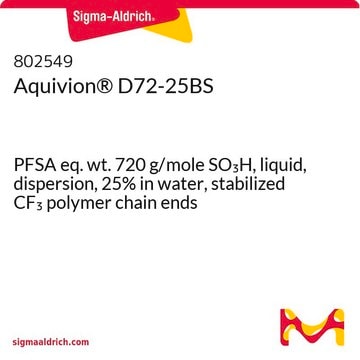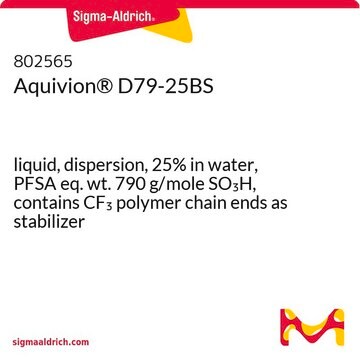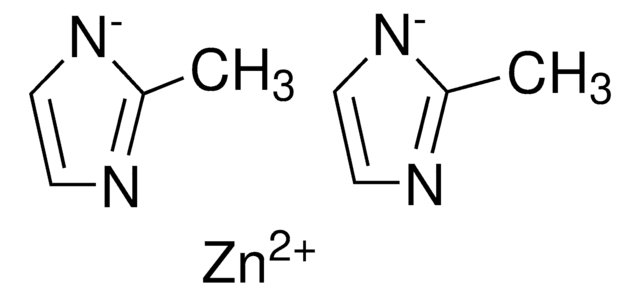70160
Nafion™ 117 containing solution
~5% in a mixture of lower aliphatic alcohols and water
Synonym(s):
Tetrafluoroethylene-perfluoro-3,6-dioxa-4-methyl-7-octenesulfonic acid copolymer
Select a Size
Select a Size
About This Item
Recommended Products
form
liquid
greener alternative product characteristics
Design for Energy Efficiency
Learn more about the Principles of Green Chemistry.
sustainability
Greener Alternative Product
concentration
~5% in a mixture of lower aliphatic alcohols and water
refractive index
n20/D 1.38
greener alternative category
InChI
1S/C7HF13O5S.C2F4/c8-1(9)2(10)24-5(15,16)3(11,4(12,13)14)25-6(17,18)7(19,20)26(21,22)23;3-1(4)2(5)6/h(H,21,22,23);
InChI key
FOYUGSIADQEOEK-UHFFFAOYSA-N
General description
Application
- polyelectrolytic membrane for fuel cells
- metal extraction from aqueous solutions
- for the production of hydrogen by thermochemical water splitting
- as a reference membrane to evaluate the methanol permeability
Legal Information
signalword
Danger
hcodes
Hazard Classifications
Eye Dam. 1 - Flam. Liq. 2 - STOT SE 3
target_organs
Central nervous system
Storage Class
3 - Flammable liquids
wgk_germany
WGK 3
flash_point_f
67.0 °F
flash_point_c
19.44 °C
Choose from one of the most recent versions:
Already Own This Product?
Find documentation for the products that you have recently purchased in the Document Library.
Articles
Proton exchange membrane (PEM) fuel cells operate at relatively low temperatures and are composed of two electrodes and a conductive elecrolyte.
Related Content
Batteries, fuel cells, and supercapacitors rely on electrochemical energy production. Understand their operation and electron/ion transport separation.
Our team of scientists has experience in all areas of research including Life Science, Material Science, Chemical Synthesis, Chromatography, Analytical and many others.
Contact Technical Service










